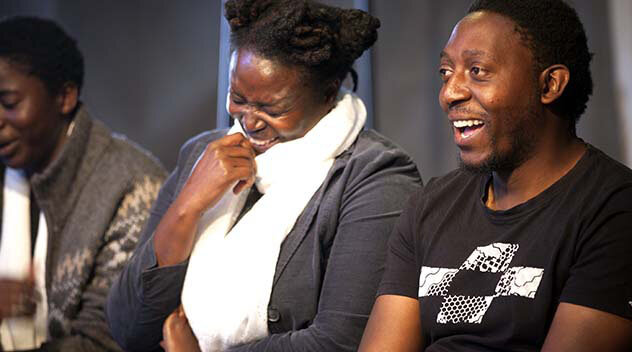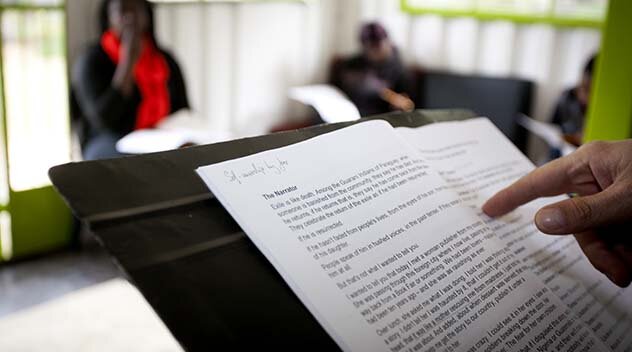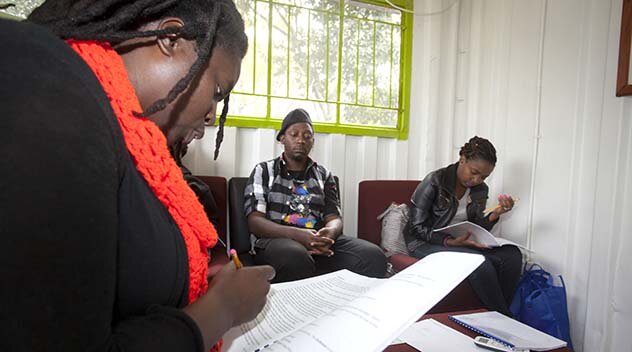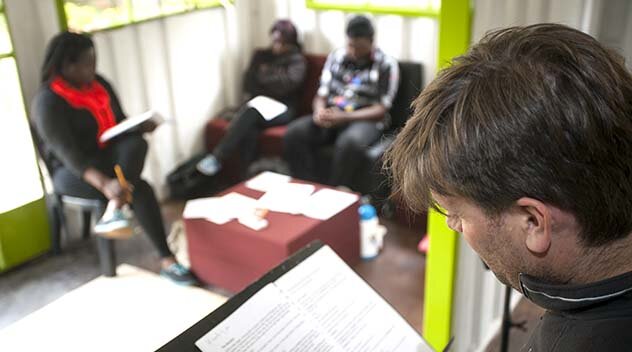I Learned to Quiet My Fears
Harare, August 5th 2017 | Elizabeth Zaza Muchemwa
Directing the staged reading of Widows was a satisfactory process for me. My understanding of the play grew the more time I spent in the rehearsal room, seeing the play in the actors’ eyes as they engaged with the theme and issues dealt with in the play. Choosing to work on Widows was not an easy decision to make. In this multi-layered dramatic piece whose issues are as universal as they are specific to a particular part of the world, I worried about the possibilities of leaning too close to the experience of others in my community especially in the post reading discussions and whether I was equipped with the skills on how to navigate such a delicate terrain.
However, with each rehearsal day, as the actors shared ideas and new discoveries were made, I learned to quiet my fears. What struck me the most about Widows was Sofia’s strength and the collective power the women found in speaking with one voice in a society that was ruled by brute force. Using symbolism and representation, the playwright unpacks war, exile, inequality, militarism and totalitarianism. And through this effort enabled the play to speak of brutalized childhood, the endlessness of time, the uneasy relationship people have with peace post a brutal conflict and the cyclical nature of injustice when not addressed.
While the play tells one about human suffering and the dehumanization of a society by war, it serves as a beacon of hope for people still living in societies governed by fear.





